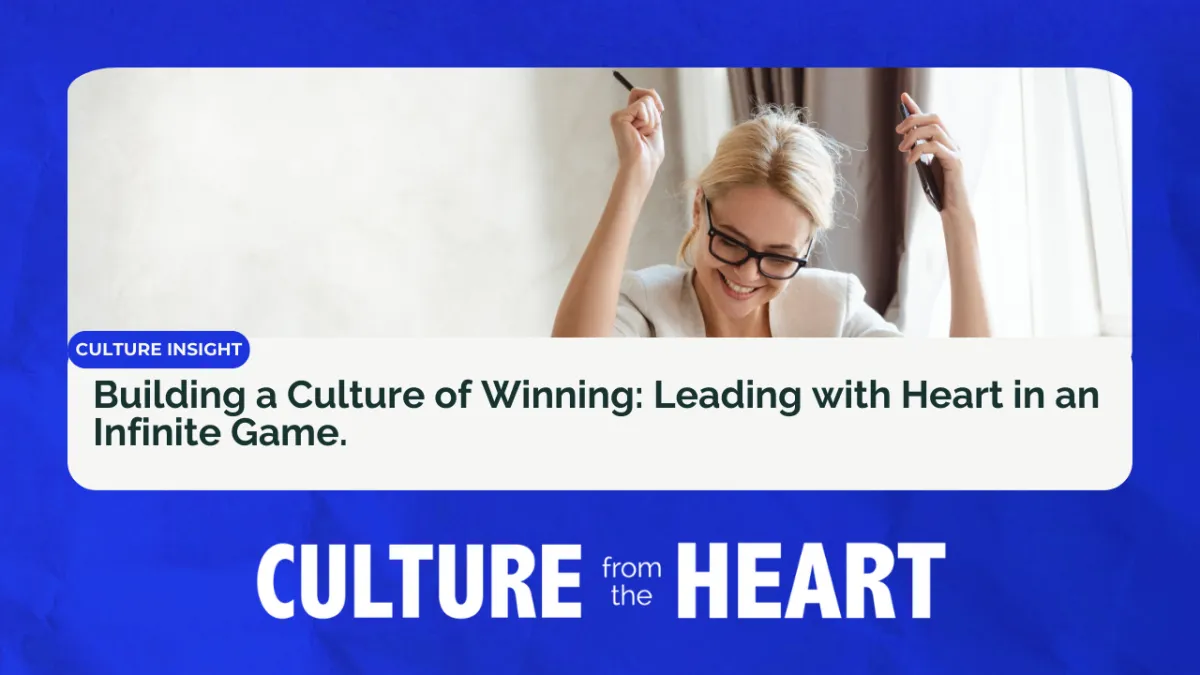
Building a Culture of Winning: Leading with Heart in an Infinite Game.
Heart-centered leaders know that winning isn't a one-time conquest, it’s an ongoing journey. Simon Sinek reminds us that business is an infinite game. It isn’t about crossing a finish line; it's about staying in the game long enough to build a legacy. In a heart-centered culture, this infinite mindset becomes a powerful engine for lasting performance, meaning, and impact.
Many leaders approach business as a finite game—where the aim is to win, beat the competition, and hit the next quarterly number. But business is an infinite game, where the true goal is to keep playing and thriving over the long term. As Sinek puts it:
“In a finite game, there is always a beginning, a middle and an end. In an infinite game, the primary objective is to keep playing, to perpetuate the game.”
A heart-centered culture shifts the definition of winning from short-term metrics to sustainable success built on purpose, values, and collective resilience.
1. A Just Cause Rooted in Heart
The Just Cause is the “why” that fuels the infinite journey. The company must be about more than financial results.
“A cause so just you’d willingly sacrifice to advance it. And, no, the cause can’t be money.”
In Culture From the Heart, the Just Cause is clear: to transform business by reaching the heart—because changed hearts spark changed beliefs, behaviors, and business outcomes. As Andrew Cohen shared on the podcast:
“If you’re not pushing your culture or your core values, there still will be a culture. It’s just not one that’s designed by you. When you take care of your people, they take care of your customers.”
This dual mission to care for employees and serve customers, creates the trust and loyalty that sustains infinite play.
2. Building Trusting Teams with Vulnerability
Commitment to long-term culture means anchoring on trust:
“When leaders are willing to prioritize trust over performance, performance almost always follows.”
Patrick Lencioni expanded on this truth in his episode:
“The best way you can develop a relationship is by being vulnerable, by trusting your heart to somebody… When a leader can say, ‘I know my good things, I know my drawbacks, I know I’ve made mistakes,’ the power that unleashes in the organization is incredible. Other people can then say, ‘Yeah, me too.’”
As Jon Kronemeyer put it:
“Culture from the heart is thoughtful, sincere, and genuine.”
Heart-centered leaders cultivate environments where vulnerability, empathy, and genuine care foster creativity, risk-taking, and connection.
3. Embracing Worthy Rivals
Rather than shaming the competition, the infinite game invites us to learn from them:
“In the infinite game, the only true competitor is yourself.”
Seeing competitors as “worthy rivals” means viewing them as agents that help us improve our game. Losing a deal becomes an opportunity to refine strategy, sharpen skills, and deepen relationships. As Duane Guidry reminds us:
“When you pour into your people, when you connect at a heart level, they will run through brick walls.”
This mindset reframes competition into collaboration with the market to raise our own standards. We respect our competitors as challengers that push us to continually improve the way we serve our customers and employees.
4. Practicing Flexibility and Resilience
Playing the game in a rapidly changing world requires flexibility and resilience. Heart-first leadership is anchored but agile:
Existential flexibility is “the capacity for bold strategic pivots when they better serve your Just Cause.”
In today’s rapidly changing world, resilience is critical. Leaders must adapt without compromising values, weathering challenges with a steady hand. As one guest reflected:
“We’re more thoughtful because we’re not acting out of fear—we’re acting out of peaceful opportunity.”
Resilient leaders turn disruptions into opportunities to evolve, ensuring their organizations continue to thrive over time. They see setbacks not as defeats but as setups for the next breakthrough.
5. Leaning Into the Strengths of Your Players
A winning culture builds teams that recognize and maximize the unique talents of every team member. Amy Bruske, CEO of Kolbe Corp., captured it perfectly:
“As leaders, we deserve the freedom to be ourselves and not be working against what's natural all the time.”
By aligning roles to natural strengths, leaders unlock potential and create environments where people excel with energy and purpose. Leaders who understand and leverage these strengths not only drive performance but also increase engagement, retention, and satisfaction—because people thrive when they’re operating in their zone of genius.
6. The Courage to Lead with Heart
Transitioning from finite to infinite requires guts:
“It takes courage to shift from finite—to being the best—to infinite, where the focus is on longevity.”
As Patrick Lencioni reminded us:
“Without vulnerability, you’re really limited… People need to know that their leader is willing to say, ‘I know who I am, I know my good things, I know my drawbacks, I know I’ve made mistakes.’”
Heart-centered leaders consistently choose the higher, longer road—because people and purpose matter more than fleeting gains.
Conclusion
A culture of winning isn’t about being better than others, it’s about being better today than you were yesterday, and staying true to what matters most. When leaders root their companies in trust, purpose, adaptability, and empathy, they don’t just win seasons—they sustain performance and build legacies.

